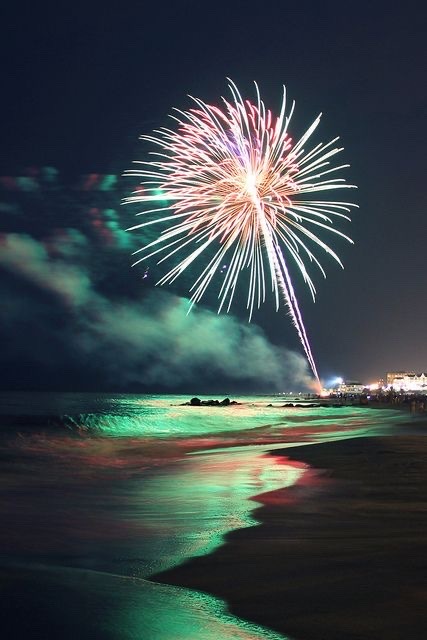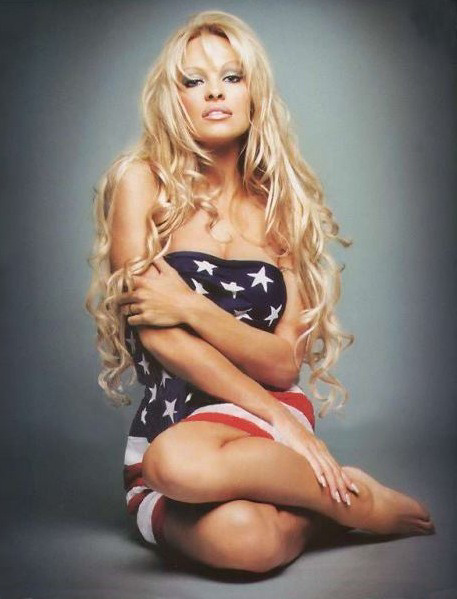#united states independence day
Text

#USA#United States of America#Military#Hangar#air travel#4th of July#Independence Day#lifestyle#lifestyle blog#photography
410 notes
·
View notes
Text

209 notes
·
View notes
Text

#July#july 4th#fourth of July#usa#independence day#fireworks#United states#America#red white and royal blue#old glory#American flag#summer#beach#coast#ocean#pretty#cool
336 notes
·
View notes
Text
Devil Ty Sonnet speaks Independence Day truth to power… Rah
#usmc#tyson sonnet#ty sonnet#marine corps#united states marines#marinecorps#us marines#us marine#u.s. marines#united states marine corps#unitedstateofamerica#united states military#united states of america#united states#hothunks#military#militär#militaire#american military#us military#u.s. military#military muscle#militarymencollection#independence day#4th of july#fourth of july#moto#motard#devil dog#military life
39 notes
·
View notes
Text
nothing says texas more than people wearing trump masks, having trump cutouts in the windows of their cars, preaching about how trump will "save us" in november at a fourth of july parade (while i, dressed in my pride outfit proudly help up my inclusion pride flag in silent protest)
and me being the only person cheering when the democrats came by, waving my pride flag because theyre my only hope
celebrating independence day while the people you endorse are working to take away every right i have is hypocritical. you can't preach about independence and freedom if you want to take away my humanity
please vote blue for those who can't yet. our future, my future, is up to you.
vote blue
#fourth of july#united states#vote blue#vote democrat#please vote#vote biden#election 2024#american politics#2024 elections#project 2025#biden administration#trump#us elections#july 4th#usa#america#independence day#politics#us politics#elections#texas#republicans#conservatives#pride#gay pride#protest#activism#united states of america#political
44 notes
·
View notes
Text

Happy Fourth of July
49 notes
·
View notes
Text
sorry for the double poll i forgot a not voting button :(
also if you are not voting (in any election anywhere) - please reconsider !! voting is important!!
#polls#tumblr polls#my polls#random polls#poll time#a poll a day#hyperspecific poll#politics#politics poll#political polls#election#us presidential election#united states elections#2024 presidential election#election polls#2024 elections#usa election#election 2024#us elections#usa president#kamala harris#donald trump#rfk jr#democrat#republican#independent voters#independent party#green party#libertarian#voting
24 notes
·
View notes
Text



hello guys i kno this is 1 day late💔💔 but ranmaru kageyama says happy 4th of july 😊 liberty🗽🗽🗽🔥🔥
#yttd#ranmaru#4th of july#kageyama#ranmaru kageyama#usa#murica#america#united states#happy independence day#kimi ga shine#your turn to die#4 july#art#artists on tumblr#cute#very kawaii desu#'#mew
24 notes
·
View notes
Text

Dancing under the sky. 🇺🇸🧨💥🧨🧨🔴⚪️🔵
#dancing#snoopy#charlie brown#peanuts#peanuts gang#fireworks#firework#fireworks display#made in the usa#usa#independence day#4th of july#fourth of july#july 4th#red white and blue#Boston pops#july fourth#American#made in america#americana#happy fourth of july#happy 4th of july#stars and stripes#united states#united states of america#charles m schulz#declaration of independence#us flag#popsicle#happy 4th
20 notes
·
View notes
Text
youtube
God Bless The USA
#2024 elections#donald trump#trump 2024#godblessusa#independence day#united states#make america great again#Youtube
19 notes
·
View notes
Text

#pamela anderson#pam anderson#pam and tommy#usa#united states#United States flag#national flag#4th of July#fourth of july#independence day#july 4th
31 notes
·
View notes
Text

#American Flag#4th of July#Independence Day#america#USA#United States of America#lifestyle#lifestyle blog#patriotism#photography
21 notes
·
View notes
Text
So, I figured that since I was going to spend the Fourth of July at my beach place, I figured that I would do something different and wave two flags, one that honors America and one that honors the beach and the ocean, albeit in a non traditional way:

Personally, I think this would have made the Kenway family proud 😉
#assassin's creed#fourth of july#beach#united states#independence day#happy fourth of july#ac iii#ac black flag#pirates#connor kenway#edward kenway#video games
15 notes
·
View notes
Text








Happy Independence Day, U.S.A. friends! Huzzah for the red, white, and blue! 🇺🇸❤️🤍💙💥
#Fourth of July#Independence Day#stars and stripes#flag#Kirby#tortoise#Russian tortoise#America#U.S.A.#'murica#party in the USA#United States of America#American pride#garland#patriotic#KIRBY CHOMP#not noms#boop#cute#animals
19 notes
·
View notes
Text

Never Forget - Freedom isn’t Free…
#4th of july#july 4th#fourth of july#usmc#independence day#united states of america#united states#united states marine corps#american military#brave#freedom isn’t free#freedom#patriots#military#u.s. military#us military#fireworks
33 notes
·
View notes
Text

By: Angel Eduardo
Published: Jul 4, 2024
If anyone had a right to hate America, it was Frederick Douglass. Born into slavery and witnessing its horrors first hand, Douglass could lay claim to resentment against our country in a way that only he and his enslaved brethren ever could. He also possessed a unique ability to articulate those feelings—and in his famous 1852 “What, to a Slave, is the Fourth of July?” speech, he showed just how powerful a skill that was.
Every year on Independence Day, advocates and activists across the political spectrum share that speech on social media, and every year I fear too few of them truly grasp its content. Some focus only on the beginning, where Douglass calls the Founding Fathers “brave…[and] great men too—great enough to give fame to a great age.” They revel in Douglass’ acknowledgement of these “statesmen, patriots and heroes,” and that “for the good they did, and the principles they contended for, [he] will unite with [us] to honor their memory.”
Others skip to the middle, once Douglass notes that, for all the aforementioned praise of the Founders, he is “not included within the pale of this glorious anniversary.” Readers of a certain ideological bent will delight in the fact that Douglass didn’t take the stage to join in the jubilation, but rather to “call in question and to denounce…everything that serves to perpetuate slavery—the great sin and shame of America,” and to bring into stark relief the “revolting barbarity and shameless hypocrisy,” for which “America reigns without a rival.”
Indeed, the majority of Douglass’ time is dedicated to enumerating and elucidating America’s inhumanity and moral contradictions, and those who quote him to paint a purely flattering image of our country often elide the speech’s substance. Douglass himself pre-empts this by noting Sydney Smith’s dictum that “men seldom eulogize the wisdom and virtues of their fathers, but to excuse some folly or wickedness of their own.”
I would argue, however, that those who are hyper-focused on Douglass’ invective—those who use it to argue that America is irredeemably corrupt, or that descendants of slaves shouldn’t celebrate July 4th, are also missing something crucial: Namely, the reason Douglass was compelled to speak at all.
For all the venom in his Fourth of July speech, Frederick Douglass didn’t hate America. He believed in it—so much so that he fought his whole life for his rightful place in it, on the basis of its founding principles.
Douglass recognized America as an ideal. He saw in those founding documents not just hypocrisy, but also a boundless and unfulfilled potential. In what he called the Declaration’s “saving principles,” he saw a hope he considered “much needed, under the dark clouds which lower above the horizon.” Douglass spoke to his audience of their America, and the ways in which it failed to be his America. He bravely and rightfully held a mirror up to our country, and demanded that it work to live up to its promise, because he wanted that promise to be fulfilled.
And that’s what too many seem to miss. Despite having every right to be, Douglass’ criticisms weren’t cynical, or merely angry and spiteful. Anyone who reads the speech in full, rather than pulling convenient bits and pieces to serve their ideological ends, will see that Douglass not only “[does] not despair of this country,” but chooses to end his address “where [he] began, with hope.”
That hope is present throughout even the most vicious of his criticisms. In fact, hope is what fuels them. Without it, I imagine Douglass wouldn’t have bothered to criticize America at all. What would have been the point?
There’s a heartbreaking bleakness to the idea, communicated by some, that progress is impossible. I believe this is a mistake—not simply for the fact that despite our myriad problems, all around us is evidence to the contrary. It’s also mistaken because without hope there is no real reason to fight. Douglass knew that. We should too.
The United States was only seventy-six years old on the day Douglass addressed that audience on the Fourth of July. He noted that the country was “only in the beginning of [its] national career, still lingering in the period of childhood.” As we approach our two hundred and forty-sixth year, perhaps the beginning of our national adolescence, we still have plenty of work to do to live up to our founding principles. That work will likely never be finished. But if we wish to get somewhere, we must first acknowledge not just where we’ve been, but also where we are and how far we’ve come.
==
Anger isn't the real destroyer; it's apathy. When you're angry, you still care enough to want better. But when apathy sets in, there's nothing left; that's the end of the line. Just ask Star Wars fans.
#Angel Eduardo#Frederick Douglass#July 4th#Independence Day#United States#slavery#progress#Fourth of July#religion is a mental illness
16 notes
·
View notes